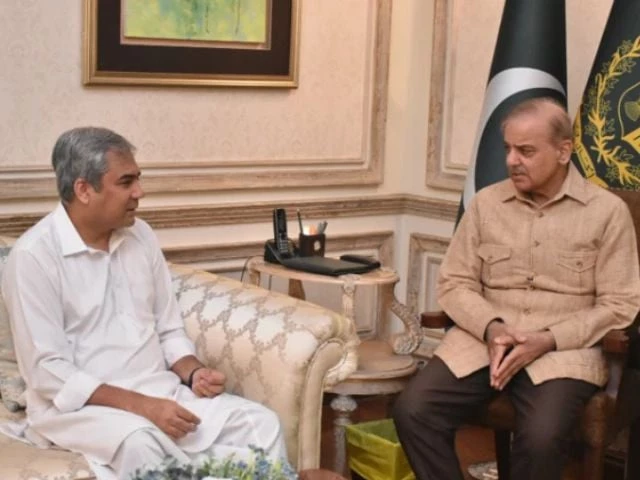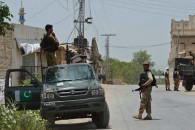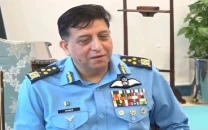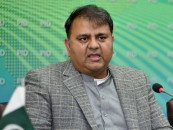Afghans brace for crackdown post-Eid
Interior minister briefs PM about repatriation process

With Eid holidays coming to an end on Wednesday, the process to expel all illegal foreigners and Afghan Citizen Card (ACC) holders is likely to gain momentum as the deadline for their voluntary departure has officially expired.
In this connection, Interior Minister Mohsin Raza Naqvi called on Prime Minister Shehbaz Sharif on Wednesday and briefed him about the progress with regard to the repatriation process of the Afghan nationals.
According to official data, a total of 886,242 undocumented Afghan nationals have left Pakistan as of April 1, with repatriations continuing.
Authorities have warned of strict legal action against those who failed to leave by the deadline, reinforcing the government's commitment to enforcing immigration laws.
Pakistan had set a March 31 deadline for all illegal residents, including Afghan Citizen Card holders, to voluntarily return to their home countries.
However, with the deadline now past, the government has signaled the start of forcible removals and legal measures against those still residing in the country without proper documentation.
The deadline for their return ended on March 31, but the repatriation process could not formally begin due to the Eid holidays.
There are 43 camps for Afghan refugees in Khyber-Pakhtunkhwa. The number of Afghan nationals in Pakistan holding Proof of Registration (PoR) cards is 1,344,584. In Khyber-Pakhtunkhwa, the total number of registered Afghan refugees is 709,278, out of which 344,908 are residing in camps.
The number of Afghan refugees holding Afghan Citizen Cards is 307,647. Since 2013, a total of 465,000 Afghan refugees have returned through the Torkham border.
In Balochistan, 317,000 Afghan refugees are registered, while Punjab has 196,000, Sindh has 74,117, Islamabad has 42,718, and Azad Kashmir has 4,448 Afghan refugees residing.
The Afghan interim government under the Taliban on Tuesday had called upon Islamabad not to start deportation of Afghan nationals.
"Notably, Pakistan has announced a renewed crackdown, stating that it will deport individuals without legal residence permits, even as valid cardholders face uncertainty," an Afghan government statement said on April 1, according to the Afghan official Bakhtar news agency.
The mass deportation drive, launched last year, is part of Pakistan's broader strategy to regulate undocumented migration and address rising security concerns.
Meanwhile, law enforcement agencies in the twin cities have been instructed to apprehend and deport Afghan nationals involved in criminal activities, along with their families.
In Rawalpindi, the police chief has ordered the superintendents of the Rawal, Potohar, and Saddar divisions to take legal action against undocumented Afghan nationals residing or working in the district.
Authorities have been explicitly directed to detain any Afghans implicated in criminal activities. However, the directive also calls for a broader punitive approach, stipulating that if any member of a family is found guilty of a crime, the entire family will face deportation.
Following the Rawalpindi city police officer's (CPO) orders, all station house officers (SHOs) have been tasked with identifying and detaining Afghan nationals living in their respective jurisdictions and their families.
Meanwhile, the United Nations High Commissioner for Refugees (UNHCR) has acknowledged Pakistan's hospitality toward refugees, while stressing that a sustainable solution requires "all of us working together - Afghanistan, Pakistan and the international community".
In her Eid message, UNHCR Pakistan representative Philippa Candler reiterated that Pakistan could not be expected to shoulder the responsibility of hosting Afghan refugees indefinitely.
She called for a comprehensive approach to address both the immediate and long-term challenges faced by Pakistan, Afghanistan and the Afghan refugees themselves.
Candler further stressed the crucial role of the international community, highlighting the need for continued humanitarian aid, not just for short-term relief but also to support long-term development initiatives.



















COMMENTS
Comments are moderated and generally will be posted if they are on-topic and not abusive.
For more information, please see our Comments FAQ